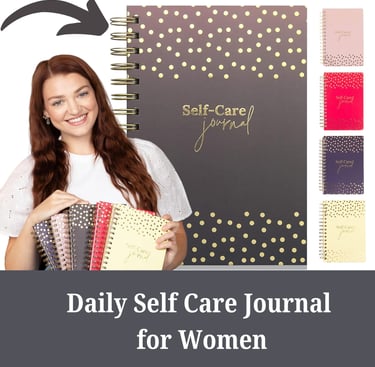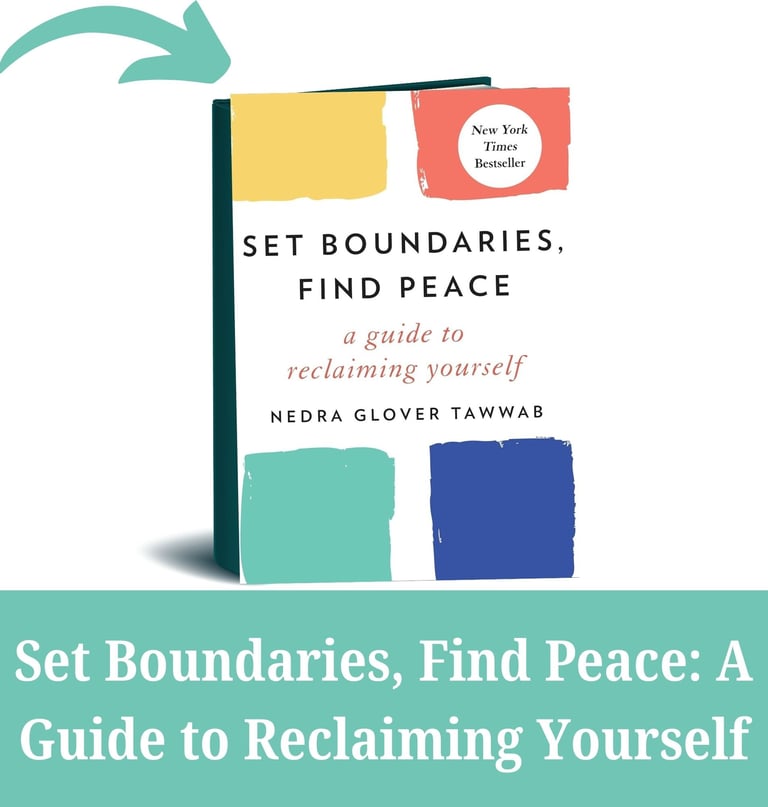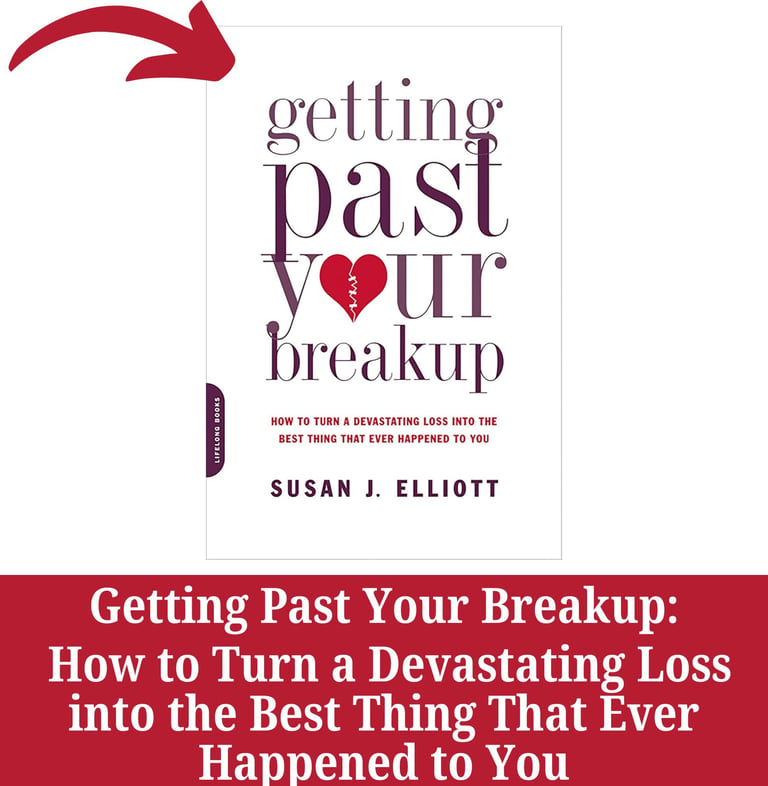As an Amazon affiliate, we earn commissions at no extra cost to you if you click our links and make a purchase.
How to Stop Hurting from Breakup: Healing Strategies
SELF CARE AND PERSONAL GROWTH
Shari Smith
1/1/202517 min read
As an Amazon affiliate, we earn commissions at no extra cost to you if you click our links and make a purchase.


Navigating the aftermath of a breakup can take a toll on your mental health. The healing process is a journey, not a race, and understanding the impact of this loss of a relationship is crucial for moving forward.
This article offers strategies to help you cope with the pain, prioritize your well-being, and ultimately rediscover yourself.
Understanding the Impact of Breakup Pain
When you experience a breakup, your broken heart goes beyond just metaphor. The negative emotions you feel — sadness, anger, loneliness, and confusion are all valid responses to a significant loss. Allow yourself to experience these feelings without judgment or self-criticism.
Sometimes, it can feel like the pain is all-consuming, but it's important to remember that you're not alone and that healing is possible. Just as you would tend to a physical wound, be kind to yourself and allow your emotional wounds to heal over time.
The Emotional Rollercoaster: What to Expect
Breakup pain can manifest as emotional distress, often compared to the stages of grief. You might experience denial, bargaining, anger, sadness, and eventually, acceptance. There's no right or wrong way to feel, and it's important to allow yourself to move through these stages at your own pace.
Don't try to rush the healing time; it varies for everyone. Some days will be harder than others, and that's perfectly normal. Remember that healing is not linear; you may have moments of progress followed by setbacks. Be patient with yourself and trust that with time, the intensity of your emotions will lessen.
If you find yourself struggling to cope or if your emotional distress becomes overwhelming, seeking support from a therapist or counselor can provide valuable tools and strategies for managing your emotions in a healthy way.


Why Breakups Can Feel Like Physical Pain
The heartache you feel after a breakup isn't just in your head – it can manifest physically too. Studies show that the same areas of the brain activate during emotional pain as they do during physical pain. That's why you might feel a tightness in your chest, experience changes in appetite or sleep patterns, or have low energy after a breakup.
This physical response is part of your body's natural stress response. When you're hurting emotionally, your brain releases hormones like cortisol and adrenaline, which trigger these physical symptoms. Engaging in physical activity can be beneficial during this time, as it can help to regulate your mood and reduce stress hormones.
Consider incorporating activities like walking, running, or yoga into your routine to help ease the physical manifestations of your heartache. Additionally, prioritize restful sleep and a balanced diet to support your body's natural healing process.


Initial Steps to Healing After a Breakup
The first steps after a breakup can feel daunting. It's a time of transition and adjustment as you navigate life without your partner. It's okay to feel lost and uncertain at first, and it's important to approach this period with self-compassion.
Start by acknowledging that this is a significant change, and allow yourself the time and space to grieve the loss of the relationship. Remember that healing is a gradual process, and it's okay to take things one day at a time.
Acknowledge Your Feelings Without Judgment
In the beginning stages of healing, it's natural to experience a whirlwind of emotions. Instead of suppressing or ignoring your true feelings, embrace them with self-compassion. Allow yourself to feel the sadness, anger, loneliness, or any other emotions that surface, without judgment.
Acknowledge that these feelings are a normal part of the healing process. Bottling them up will only prolong the pain. Create a safe space for yourself where you can express your emotions freely, whether it's through crying, journaling, talking to a trusted friend, or seeking support from a therapist.
Remember that healing is personal. There's no right or wrong way to process your emotions. Allow yourself the grace to move through this experience at your own pace, honoring your true feelings along the way.


Start a Journal: Writing as a Form of Therapy
In the midst of heartbreak, you might find yourself with more free time than usual. A great way to channel your energy positively is to start a journal. Writing can be incredibly therapeutic and can serve as a valuable tool in your healing process.
Use your journal as a safe and private space to express your thoughts and emotions without judgment. Write about the relationship, the breakup, and how you're feeling. Don't worry about grammar or punctuation; just let the words flow freely.
Journaling can be a powerful form of emotional release. It allows you to process your feelings, gain clarity, and identify patterns in your thoughts and behaviors. Over time, you can look back on your entries and see how far you've come in your healing journey.


Cutting Ties: The Importance of Space and Boundaries
One of the most important things you can do for yourself after a breakup is to create space and establish boundaries with your ex. While it may be tempting to stay in contact or try to remain friends, it's often necessary to sever ties, at least temporarily, to allow yourself to heal.
Constant communication or seeing your ex on social media can reopen emotional wounds and hinder your progress in moving on.
This separation allows you to focus on yourself, process your emotions, and gain clarity. Remember, healing takes time, and creating this distance provides the opportunity to rediscover your independence and start building a fulfilling life without your former partner.


The Role of Social Media in Healing
In today's digital age, social media plays a significant role in our lives, even after a breakup. While it can be tempting to spend a lot of time scrolling through your ex's profiles or seeking validation online, it's essential to be mindful of how social media impacts your emotional well-being. Seeing photos or posts about your ex can trigger painful emotions and hinder your healing process.
Consider taking a break from social media or, at the very least, unfollowing or blocking your ex. This allows you to create a healthy distance and avoid constantly being reminded of the relationship. Instead, focus on using social media to connect with supportive friends and family, engage in activities you enjoy, and share positive aspects of your life.
If you find yourself struggling with negative thoughts or emotions while using social media, don't hesitate to reach out for help. Remember, you're not alone, and resources like the crisis text line are available to provide support and guidance when you need it most.
To Block or Not to Block: Navigating Communication Post-Breakup
Deciding whether to block your ex on social media and communication channels is a personal choice. There's no right or wrong answer, but it's vital to prioritize your well-being and create a safe space for yourself as you heal. If constantly seeing your ex's updates triggers sadness, anger, or longing, blocking them can be a healthy boundary to set.
On the other hand, if you feel that maintaining some level of contact is necessary for practical reasons or if you hope to have a friendship in the future, setting clear boundaries is crucial. Communicate these boundaries with your ex, letting them know what you're comfortable with and what you're not.
Remember that you have the right to change your mind at any point. If maintaining contact becomes emotionally draining, it's okay to adjust your boundaries or block them altogether. Prioritize your healing and create an environment that supports your emotional well-being.




Rediscovering Your Individuality and Interests
After a breakup, it's normal to feel a sense of loss of identity, especially if you spent a significant amount of time with your partner. Take this opportunity to rediscover who you are outside of the relationship. Revisit your passions, interests, and goals.
Embrace this chance for personal growth and exploration. As you reconnect with yourself and engage in activities that bring you joy, you'll naturally begin to rebuild your life and create a future filled with possibilities.
Picking Up Old Hobbies and Exploring New Ones
One of the most rewarding aspects of healing after a breakup is the rediscovering of your passions and interests. With newfound free time, you have the opportunity to explore new hobbies or rekindle old ones that may have fallen by the wayside during your relationship. Remember that book you always wanted to read or that dance class you were eager to try? Now is the time to pursue them!
Engaging in activities you love is not only enjoyable but also therapeutic. It allows you to focus on something positive, boost your mood, and rediscover a sense of accomplishment and joy. As you dedicate time to your passions, you'll naturally begin to reconnect with your authentic self.
Embrace this period of personal growth and exploration. Don't be afraid to step outside of your comfort zone and try new things. You might surprise yourself with hidden talents or discover a newfound love for an activity you never thought you'd enjoy.
The Significance of Solo Time and Self-Reflection
In the aftermath of a breakup, it can be tempting to seek solace in the company of others or jump into a new relationship to fill the void. However, embracing solo time and self-reflection is crucial for true healing and personal growth. Spending time alone allows you to process your emotions, gain clarity about the relationship, and understand your role in it.
Use this time to reflect on your values, needs, and desires. What did you learn from the relationship? What are your non-negotiables in a partner? By understanding yourself better, you'll be in a stronger position to make healthier choices in the future.
Solo time doesn't have to be isolating. Embrace activities that bring you peace and rejuvenation, whether it's reading, taking a walk in nature, pursuing creative endeavors, or simply enjoying a quiet evening at home. Remember, self-reflection is not about dwelling on the past but rather about learning from it and preparing yourself for a brighter future.






Building a Support System for Emotional Resilience
Building a strong support system is essential during any life transition, especially after a breakup. Surround yourself with people you trust, who love and care about you. These are the individuals who will provide a listening ear, offer encouragement, and remind you of your strength and worth.
Remember, you don't have to go through this alone. Leaning on your support system can provide a sense of comfort, belonging, and remind you that you are loved and valued. Don't hesitate to reach out to those who care about you; they can be invaluable pillars of strength during difficult times.
Leaning on Friends and Family: How and When
During times of emotional upheaval, like after a breakup, leaning on your support system can make a world of difference. Friends and family members can provide a listening ear, offer words of encouragement, and remind you of your strength and resilience. Don't be afraid to reach out to a trusted friend or family member and share what you're going through.
However, it's also important to be mindful of your support system's boundaries and not overload them with your emotions. Choose individuals who are empathetic, understanding, and who offer healthy coping mechanisms. If you find yourself consistently leaning on the same person, consider branching out to others in your circle to avoid overwhelming them.
Remember, your support system is there to provide comfort and encouragement, not to solve your problems. Use their presence as a source of strength, but also focus on developing healthy coping mechanisms for yourself, such as journaling, exercise, or therapy.
Finding Community Support: Groups and Online Forums
While friends and family provide invaluable support, sometimes connecting with others who have experienced similar situations can offer a unique form of understanding. Community support groups or online forums for people who have gone through breakups can provide a safe and judgment-free space to share your experiences, seek advice, and learn from others' journeys.
These platforms allow you to connect with individuals who can empathize with your struggles and offer words of encouragement, knowing they've been through similar challenges. Hearing stories of resilience and healing from others can be incredibly inspiring and remind you that you're not alone in your experience.
Joining a support group or engaging in online forums can also provide valuable insights into navigating the aftermath of a breakup. You might learn about healthy coping mechanisms, strategies for moving on, or gain a fresh perspective on your own situation. Remember, healing is often a collective experience, and tapping into community support can be an empowering part of the healing process.






Physical Health as a Foundation for Emotional Recovery
Taking care of your physical well-being is an essential aspect of healing after a breakup. Often, emotional distress can manifest in physical symptoms such as fatigue, changes in appetite, sleep disturbances, and weakened immunity.
By prioritizing your physical health, you can support your body's natural healing processes and strengthen your overall resilience.
Engaging in regular exercise, nourishing your body with nutritious foods, getting adequate sleep, and managing stress levels contribute significantly to your emotional well-being. Remember, taking care of yourself physically is not selfish; it's a crucial step in nurturing your emotional recovery and building a strong foundation for a brighter future.
Exercise as Emotional Release
When you're feeling the emotional weight of a breakup, it might be the last thing you want to do, but engaging in exercise can be surprisingly therapeutic. Physical activity serves as a natural stress reliever, helping to reduce the levels of stress hormones like cortisol in your body.
Moreover, exercise releases endorphins, which have mood-boosting effects, helping to alleviate feelings of sadness and anxiety. You don't have to become a gym enthusiast overnight; start with small, achievable goals like going for a walk in nature, trying a yoga class, or dancing to your favorite music.
The key is to find activities you genuinely enjoy and incorporate them into your routine. Not only will exercise improve your physical health, but it will also support your emotional well-being as you navigate the challenges of a breakup.
Nutrition and Sleep: The Basics of Self-Care
During the aftermath of a breakup, self-care becomes even more crucial, and that includes paying attention to your nutrition and sleep habits. What you eat and how well you rest directly impact your mood, energy levels, and overall well-being. When you're feeling emotionally drained, it's easy to neglect these basic needs, but nourishing your body with nutrient-rich foods and prioritizing restful sleep are essential acts of self-care.
Instead of reaching for comfort foods that provide temporary gratification but ultimately leave you feeling sluggish, focus on consuming balanced meals rich in fruits, vegetables, lean proteins, and whole grains. These foods provide the essential vitamins, minerals, and antioxidants your body needs to function optimally and support your emotional resilience.
Similarly, aim for 7-8 hours of quality sleep each night. Sleep deprivation can exacerbate feelings of sadness, anxiety, and irritability, making it even harder to cope with the challenges of a breakup. Establish a relaxing bedtime routine, create a calming sleep environment, and prioritize restful sleep as a non-negotiable part of your healing process.
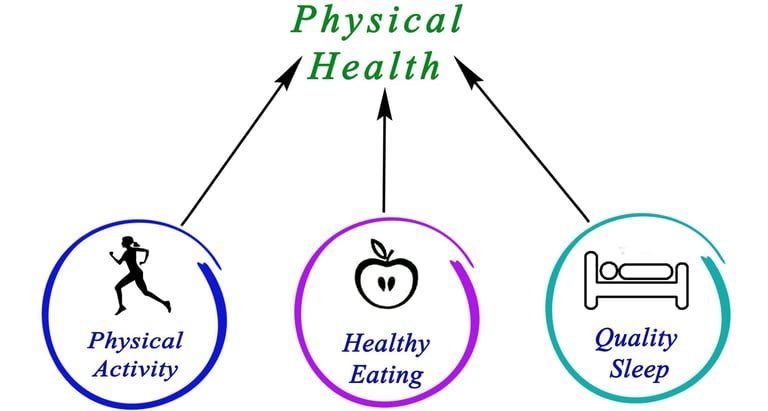





Mindfulness and Meditation for Inner Peace
In the chaos of a breakup, it's easy to get caught up in a whirlwind of negative thoughts and anxieties about the future. Practicing mindfulness and meditation can provide a pathway to inner peace, helping you stay grounded in the present moment rather than dwelling on the past or worrying about what lies ahead.
These practices encourage you to observe your thoughts and feelings without judgment, cultivating a sense of acceptance and self-compassion. Incorporating even a few minutes of mindfulness or meditation into your day can make a significant difference in your overall well-being.
Starting a Mindfulness Practice
Mindfulness, the practice of bringing your attention to the present moment without judgment, can be a powerful tool for navigating the emotional turbulence of a breakup. It involves paying attention to your thoughts, feelings, and bodily sensations without getting swept away by them. Instead of dwelling on the past or worrying about the future, mindfulness encourages you to focus on the here and now.
One simple way to cultivate mindfulness is to engage your senses. Pay attention to the sights, sounds, smells, tastes, and textures around you. Notice the feel of your feet on the ground, the taste of your food, or the sound of the birds singing outside your window. By grounding yourself in the present moment, you can find a sense of calm and clarity amidst emotional storms.
Practicing mindfulness regularly can help you develop a greater sense of awareness of your thoughts and emotions, allowing you to observe them without judgment and prevent them from controlling your actions. It's about acknowledging your feelings without letting them consume you, promoting inner peace, and allowing you to approach challenges with more composure and clarity.
Meditation Apps and Resources That Can Help
If you're new to meditation or looking for guidance, numerous apps and resources are available to support your practice. Meditation apps provide guided meditations, soothing music, and helpful tips for beginners and experienced meditators alike. Many offer themed meditations specifically tailored for heartbreak, anxiety, stress, and sleep, making it easier to find practices that resonate with your current emotional state.
In addition to apps, consider exploring local meditation centers, workshops, or online communities dedicated to mindfulness and meditation. Connecting with others who practice these techniques can provide a sense of support, encouragement, and shared learning.
Remember that healing takes time. Be patient with yourself and don't get discouraged if you find it challenging to quiet your mind initially. Even a few minutes of daily meditation can make a difference in your overall well-being, gradually reducing stress, promoting emotional regulation, and contributing to your healing journey.






When to Seek Professional Help
While self-care strategies and support from loved ones are invaluable during a breakup, it's essential to recognize when professional help is necessary. Breakups can trigger or exacerbate underlying mental health conditions such as anxiety, depression, or trauma responses.
If you're experiencing overwhelming sadness, loss of interest in activities you once enjoyed, difficulty sleeping, changes in appetite, feelings of hopelessness, or thoughts of self-harm, don't hesitate to reach out to a mental health professional.
Recognizing the Signs That You Need More Support
Breakups are emotionally challenging, but if you notice your emotional distress is persistent, overwhelming, or interfering with your daily life, seeking professional help is crucial. It's easy to minimize your feelings or try to power through the pain alone, but seeking support from a therapist or counselor can provide valuable tools and strategies for coping effectively.
Pay attention to warning signs that indicate you might benefit from professional help: prolonged sadness or hopelessness, loss of interest in activities you used to enjoy, difficulty concentrating, changes in appetite or sleep patterns, social withdrawal, increased irritability or anger, and thoughts of self-harm.
If you recognize these signs in yourself, don't hesitate to reach out to a mental health professional. They can provide a safe and supportive space to process your emotions, develop healthy coping mechanisms, and work through the challenges associated with the breakup. Remember, seeking help is a sign of strength and self-awareness, reflecting your commitment to your well-being.
Therapy Options: From Traditional to Digital
Finding a therapist has become more accessible than ever with the rise of digital mental health platforms. Traditional in-person therapy remains a valuable option, but online therapy offers convenience, flexibility, and often lower costs, expanding access to care for those who might face barriers to traditional settings.
Whether you choose traditional in-person therapy or explore digital mental health options, remember that taking that first step toward seeking help is commendable. A therapist can provide a supportive and non-judgmental space to process your emotions, develop healthy coping mechanisms, and navigate the challenges of heartbreak and loss.
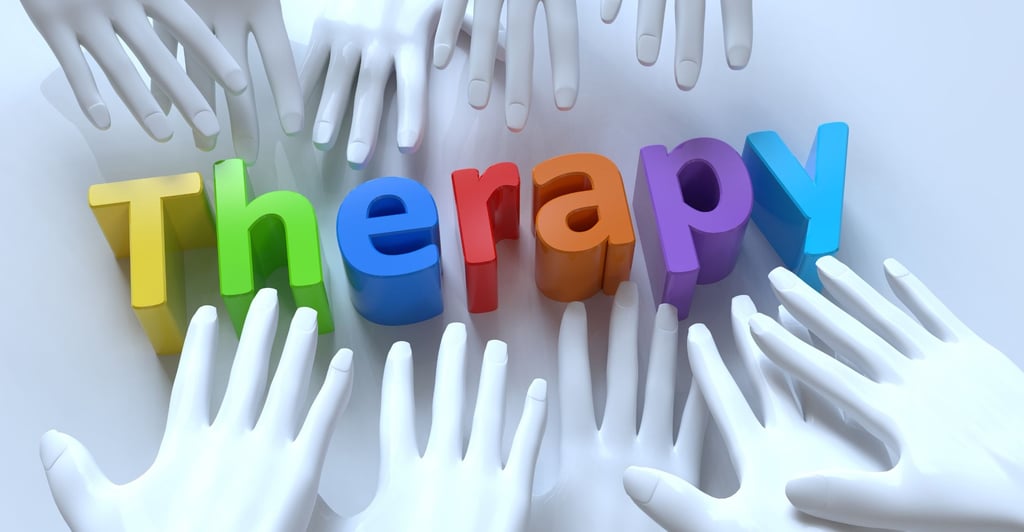





Opening Yourself to Love After Loss
After a breakup, the thought of trusting and loving again can feel daunting. The pain of heartbreak can linger, making it challenging to open yourself up to the possibility of a new relationship. However, remember that healing is possible, and with time and self-compassion, you can learn to trust yourself and others again.
Moving forward doesn't mean forgetting the past or minimizing the pain you've endured. It's about acknowledging your experience, learning from it, and allowing yourself to be open to the possibility of love and connection in the future when the time is right.
Opening yourself up to love after experiencing the loss of a relationship requires courage and vulnerability. It's natural to feel scared, hesitant, or even cynical about the prospect of falling in love again. However, it's essential to remember that love is a fundamental human need, and closing yourself off to it can lead to isolation and emotional stagnation.
As you heal and rediscover your own worth, you'll naturally become more open to the possibility of sharing your life with someone new. Embrace the vulnerability that comes with opening your heart, and remember that true love is worth the risk.


Conclusion
In conclusion, navigating through breakup pain requires acknowledging your feelings, granting yourself space for healing, rediscovering your individuality, and fostering emotional resilience. Remember that it's okay to seek support from friends, family, or professional help when needed.
Take time to prioritize self-care, engage in therapeutic activities, and gradually rebuild trust in relationships.
Healing from a breakup is a process, and by practicing mindfulness, staying connected with loved ones, and focusing on your well-being, you pave the way for personal growth and a brighter future ahead. Embrace this journey of self-discovery and allow yourself to heal and love again.
Frequently Asked Questions
How Long Does It Typically Take to Overcome Breakup Pain?
There's no fixed healing time for overcoming the pain of a breakup. It varies depending on the relationship's length and significance, coping mechanisms, and individual resilience. It's a process, not a race, and allowing yourself a period of time to grieve and heal is essential.
Is It Normal to Still Love Your Ex?
Yes, it's completely normal to still love your ex, even after a breakup. Love doesn't always disappear overnight. It's a complex emotion that can linger as you heal and process the end of the relationship. A lot of people find that with time, those feelings gradually transform.
How Can I Stop Myself From Contacting My Ex?
Breaking contact with an ex requires self-control and can be challenging, especially early on. Consider unfollowing or blocking them on social media, deleting their number, and confiding in a friend for support when tempted to reach out.
What Are Some Healthy Ways to Distract Myself?
Engage in healthy ways to distract yourself by rediscovering old hobbies or exploring new ones. Activities like exercise, spending time with loved ones, pursuing creative endeavors, or volunteering can be fulfilling and therapeutic.
Can a Breakup Lead to Personal Growth?
Absolutely, breakups, while painful, can be catalysts for profound personal growth. They offer opportunities for self-reflection, learning, and self-improvement, leading to a stronger sense of self and a brighter future.

